Problem-Solving Skills Normal Word Problems Worksheets for Ages 3-7
16 filtered results
-
From - To
Introduce your child to the exciting world of problem-solving with our engaging "Normal Word Problems Worksheets" designed for ages 3-7. These thoughtfully crafted worksheets challenge young minds, helping them develop critical thinking and reasoning skills in a fun and interactive way. Each worksheet features age-appropriate math word problems that encourage children to apply their knowledge while enhancing their comprehension abilities. Perfect for home or classroom use, these exercises promote independent learning, communication, and a love for math early on. Help your little ones bridge the gap between abstract concepts and real-life applications. Explore our collection today for a fun math adventure!


Tricky Problems Worksheet: Part 1


Enrichment -2 Step Word Problems Worksheet
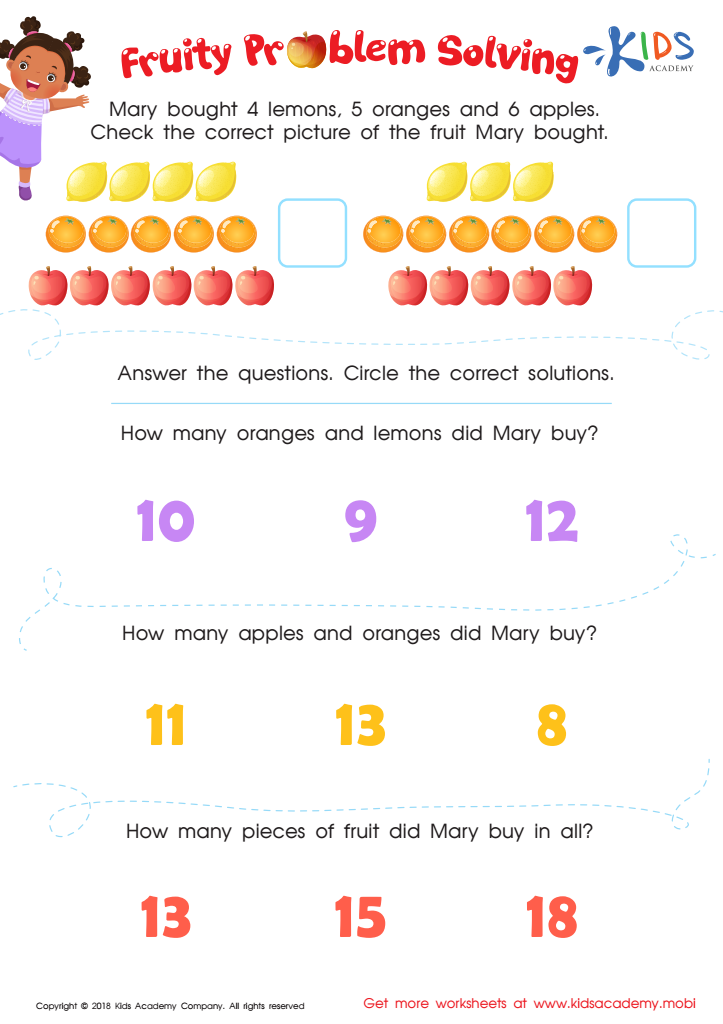

Fruity Problem Solving Worksheet


Tricky Problems Worksheet: Part 2
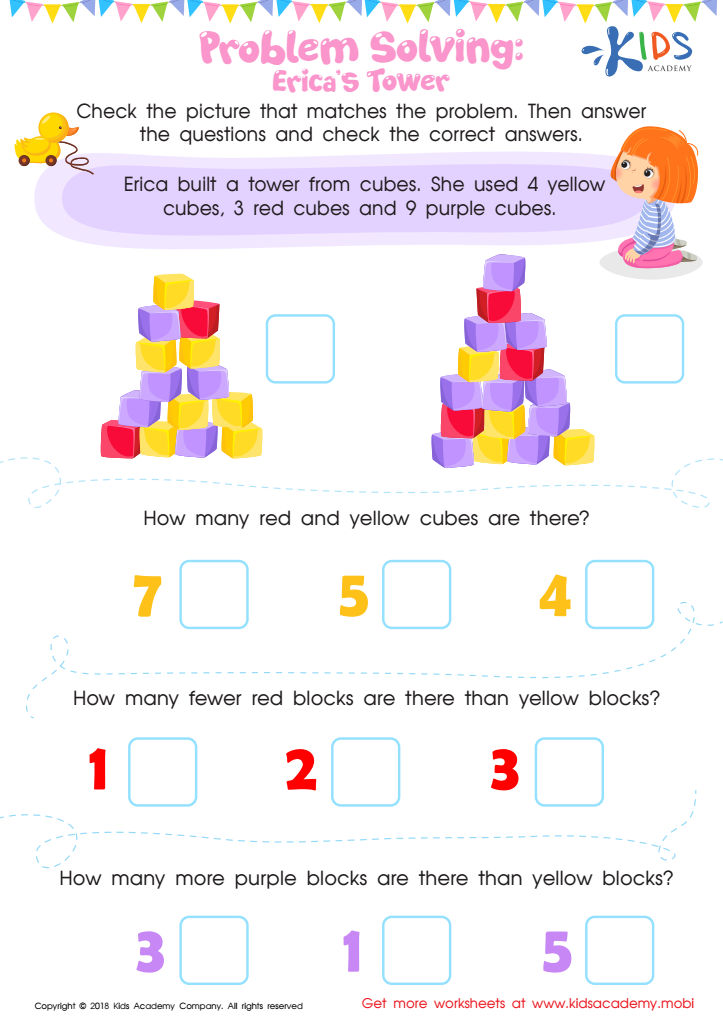

Problem Solving: Erica's Tower Worksheet
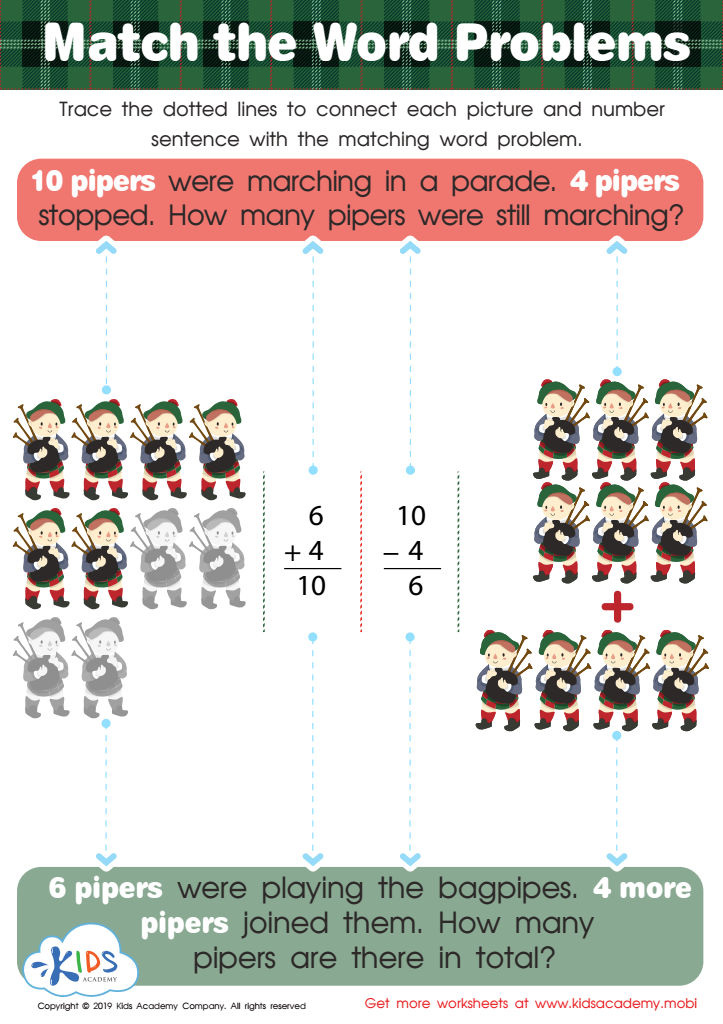

Match the Word Problems Worksheet
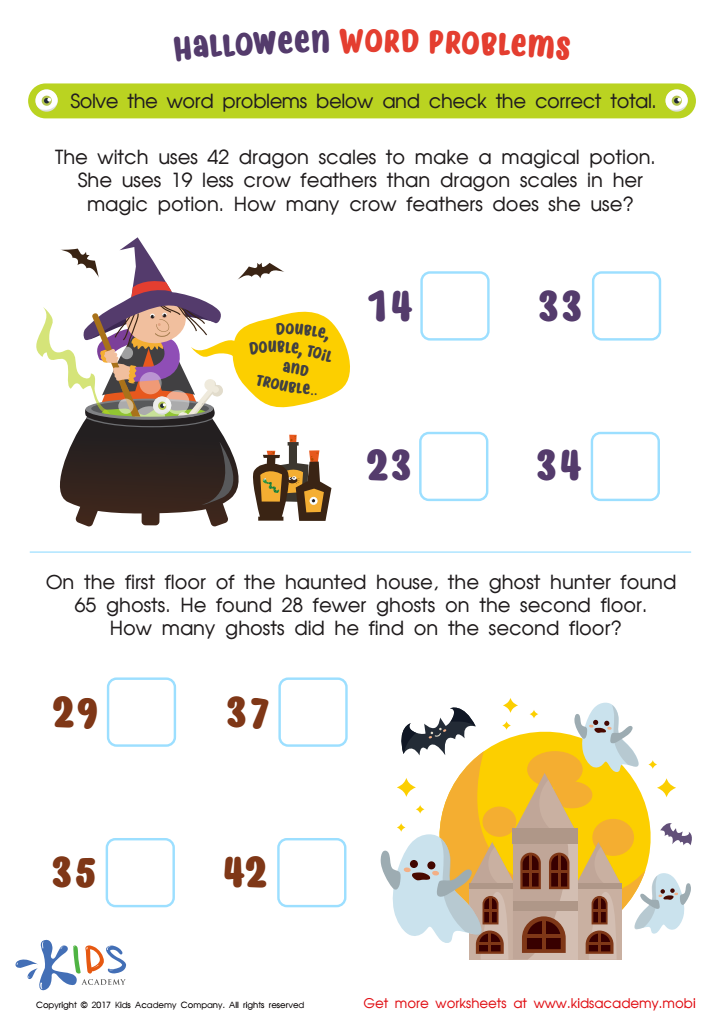

Halloween Word Problems Printable
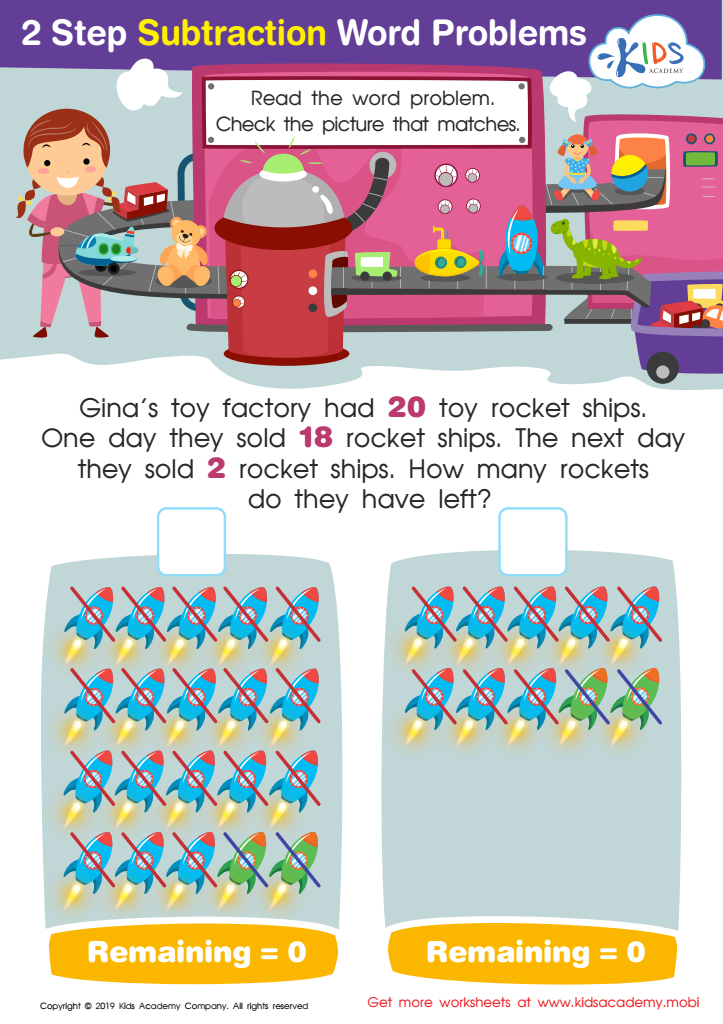

Step Subtraction Word Problems Worksheet
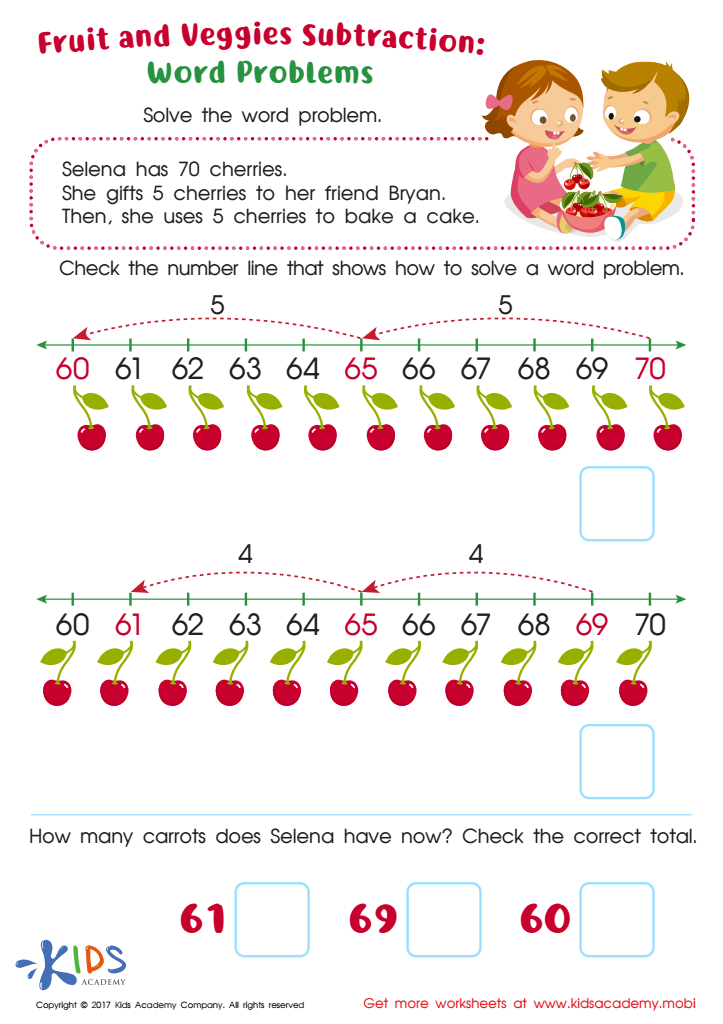

Subtraction Word Problems Free Printable
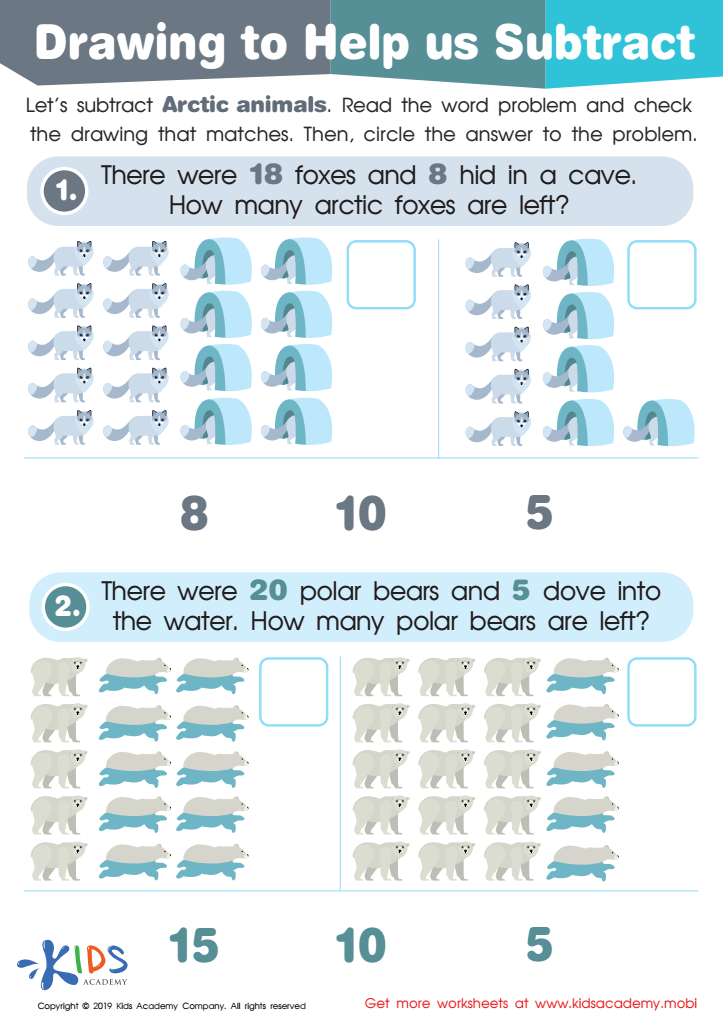

Drawing to Help Us Subtract Worksheet


Solve the Problem: Trick–or–treating Worksheet
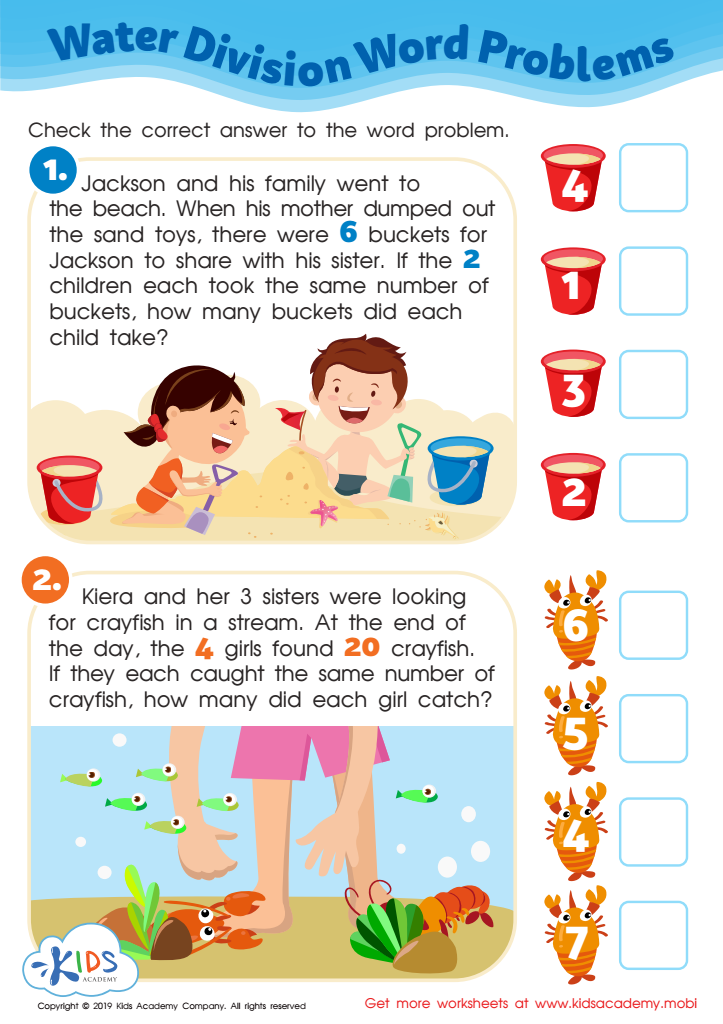

Water Division Word Problems Worksheet


Word Problems: Assessment 2 Worksheet


Addition and Subtraction: Word Problems Worksheet
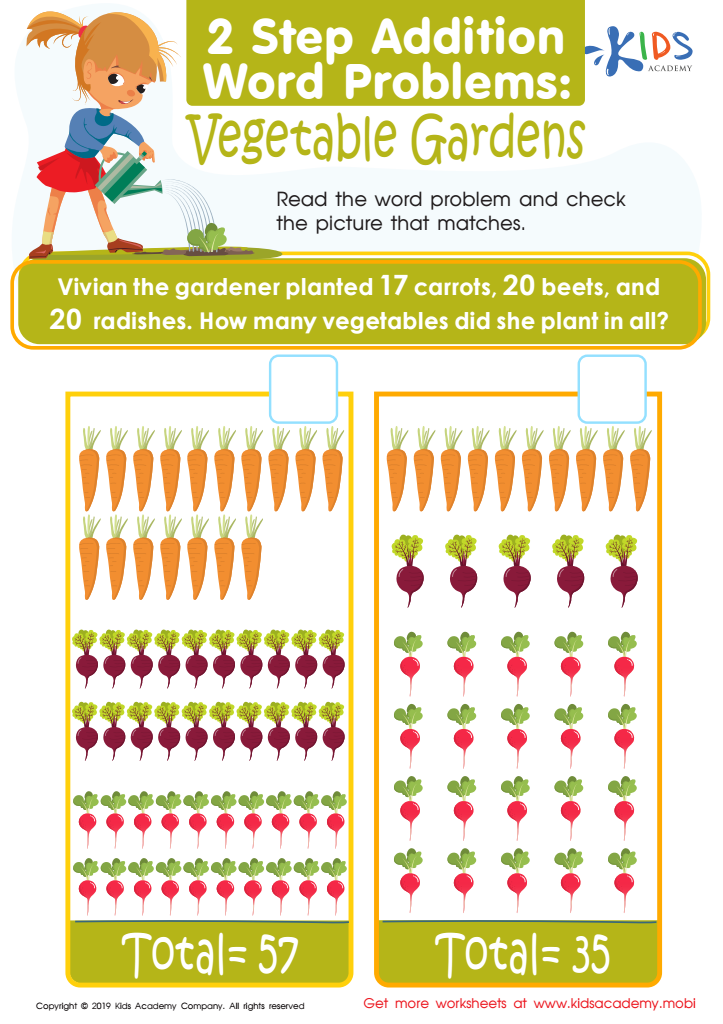

Vegetable Gardens Worksheet
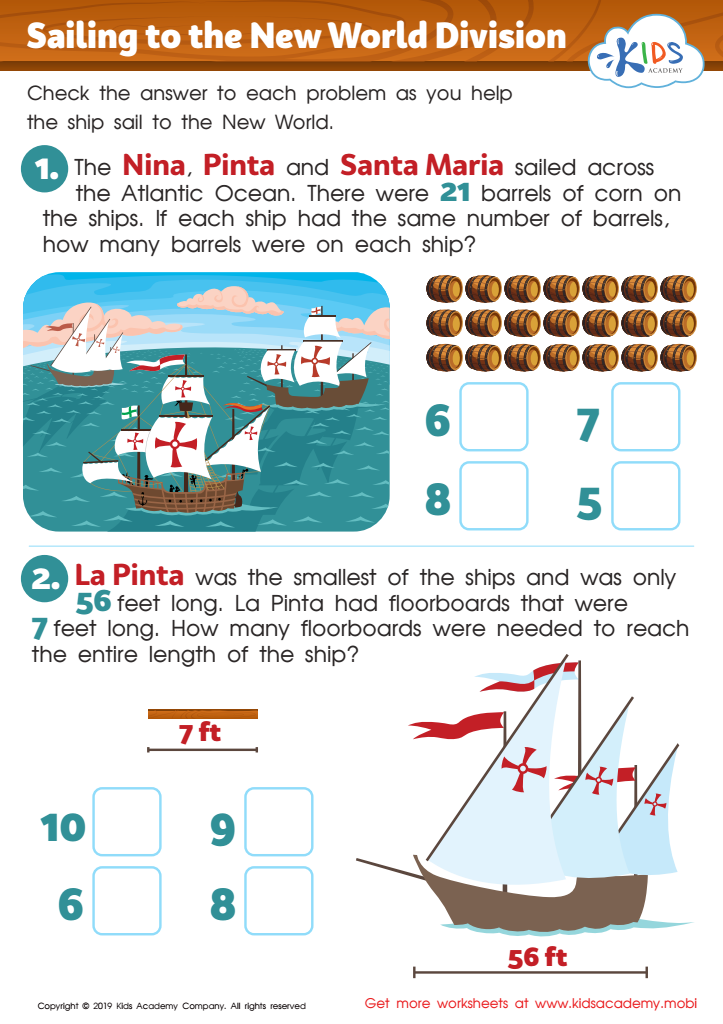

Sailing to the New World Division Worksheet
Problem-solving skills are crucial for children aged 3-7 as they lay the foundation for critical thinking and decision-making in later years. By engaging young learners with normal word problems, parents and teachers help develop cognitive abilities essential for their academic journey. These skills enable children to understand mathematical concepts in a contextual manner, fostering a deeper comprehension of both numbers and real-life situations.
Moreover, tackling word problems encourages perseverance, as children must navigate through the problem to find a solution. This persistence builds resilience and confidence, important traits for lifelong learning. As they work through the tasks, children also enhance their reading and comprehension skills, developing the ability to extract relevant information from texts.
Furthermore, these problem-solving experiences help in honing communication skills, enabling children to articulate their thought processes and reasoning. This collaborative thinking fosters social interaction and teamwork when discussed in classroom settings.
In summary, instilling problem-solving abilities through normal word problems aids in nurturing well-rounded, confident individuals ready to tackle challenges both in and out of the classroom. It's an investment in their future, making the case for parents and teachers to prioritize this vital aspect of early education.
 Assign to My Students
Assign to My Students
















